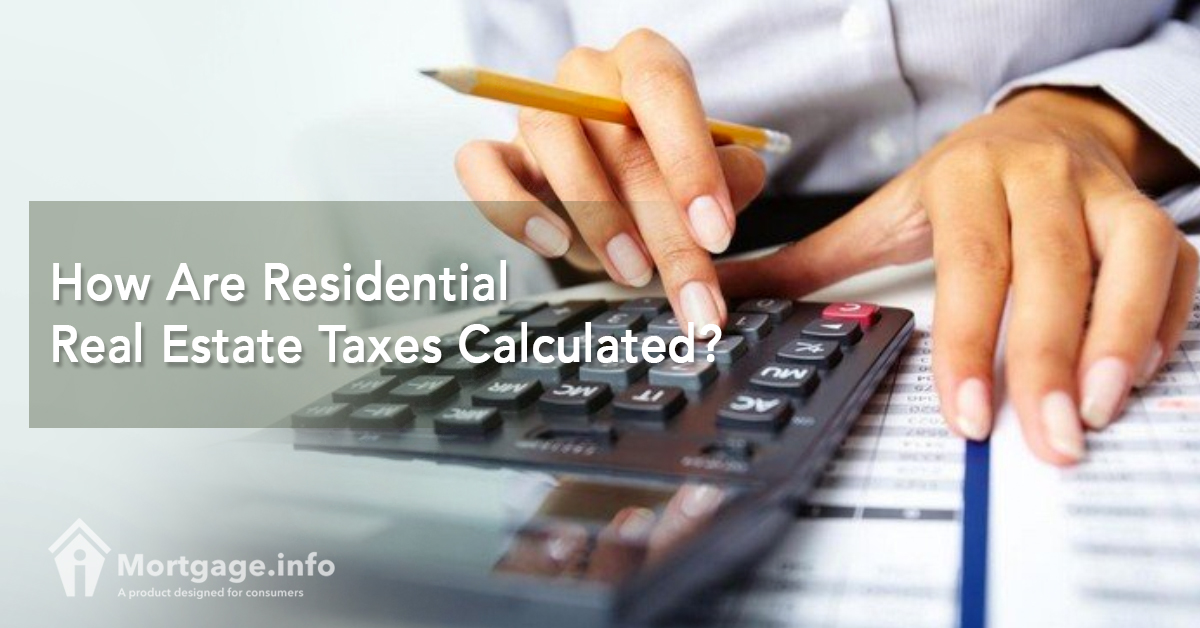
Purchasing a new home requires you to determine many different factors. One of the largest is the residential real estate taxes. Not taking a close look at the taxes could hurt you in the future. If you have a specific number you want to stay within regarding your housing budget, you need to figure in everything included in the mortgage payment. This means the principal, interest, real estate taxes, homeowner’s insurance, and premium mortgage insurance (if required). Unfortunately, there is a lot of confusion surrounding the real estate tax calculation. Do you pay taxes based on the purchase price or the value of the home?
Why is There a Difference?
First, let’s look at why there is a difference between the purchase price and the appraised value of the home. This is not always the case. There are cases when any of the following may occur:
- Purchase a home for the exact appraised value
- Purchase a home for more than the appraised value
- Purchase a home for less than the appraised value
There are many factors at play here. If the sellers are desperate to sell, they may settle for a lower price than the fair market value of the property. In other cases, there may be high demand for a specific home and the sellers luck out – obtaining a higher bid for the home than it is worth. Typically, the final sales price falls within range of the appraised value, though. If someone does purchase a home for higher than the appraised value, they have to be able to pay the difference in cash. No lender will provide financing for a loan amount higher than the fair market value.
What Do Tax Assessors Use?
Tax assessors are the professionals who determine the amount of taxes you pay. Every state and county within each state differs. Typically, though, you pay a percentage of the sales price. The percentage is set and pertains to every home sold within each county. This could mean, in the beginning, your taxes are lower than they may be in the future. This is especially true if your sales price was significantly lower than the appraised value.
Determining the Reason for a Low Sales Price
The first thing tax assessors will do if the sales price is much lower than the value of the home is determine the reason. What they want to uncover is whether it was an arm’s length transaction. This means that you do not have any type of relationship (personal or financial) with the seller. For example, if you are best friends with the person who sold you the home, this is not an arm’s length transaction. Another example is if your real estate broker owned the home that you purchased. Both parties have an interest in you or the financial outcome of the purchase. This influences the sales price too much and is not an objective price. In this case, the fair market value usually prevails for tax purposes.
The Appraised Value Usually Comes Up
No matter how low your sales price was, eventually your taxes will creep up to meet the appraised value. This occurs whether or not you make changes to the home. Obviously, if you improve the home in any way, your value will increase faster. If you add rooms onto your home, add a patio, or perform major kitchen renovations, the assessor will know. Any improvement you need to secure a permit to conduct is public knowledge. You can pretty much guarantee the tax assessor will know about it and tax you accordingly.
Even without improvements, your appraised value naturally increases. The assessor lumps your home with all of the others in the area. If he decides values increased an average of 15% for your area, this means your home’s appraised value just increased by that much. Of course, it may take time for this to happen, but you should be aware of the possibility so you are not overcome with tax payments in the future.
The Typical Residential Real Estate Tax Calculation
Because every county differs, it is hard to sum up what you can expect to pay on your taxes. However, as a rule, most counties tax home at 80% of the appraised value. If you recently purchased the home, they would use the sales price. Typically, most counties offer exemptions to help you save on your taxes, though. A few of the specific exemptions offered include:
- Homestead (you can prove you lived in the home for the full year)
- Handicapped exemptions
- Option to freeze elderly homeowners’ taxes
- Widow exemptions
It helps to ask your county which exemptions they offer to see if you qualify. They could save you a significant amount of money each year.
Residential real estate taxes should play an important role in your decision to purchase a home. They are almost as important as the interest rate you pay. If you take out a fixed rate loan, your loan payment never changes. Your taxes, on the other hand, can change from year to year. There is no way to predict what they will do. One year you could see an increase of several thousand dollars without any warning. You have to be prepared to be able to save 1/12th of that amount every month in order to pay your taxes on time. If you get behind on your taxes, it can lead to a lien and eventual foreclosure on your home. Taking the tax calculation seriously can help you make the right decision for your financial wellbeing.
